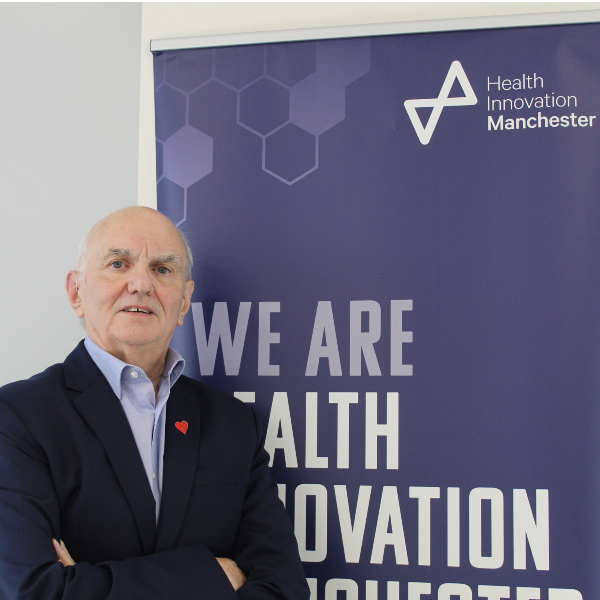How a new chest pain diagnosis test is making a difference to patients in Greater Manchester

The Chest Pain Diagnosis Project part of the Health Innovation Accelerator programme, aims to improve care for patients receiving an emergency ambulance response for acute chest pain by providing paramedics with access to a point-of-care test. Within minutes the test can determine whether they are at risk of having a heart attack.
The test identifies if a protein called Troponin has been released and in addition to other clinical observations will be input by paramedics into a computerised decision aid called T-MACS.
This called a non-ST elevation myocardial infarction. Currently this can only be determined in a hospital environment.
The ability to rapidly diagnosis a patient provides the opportunity for them to be taken to receive specialist treatment faster when they arrive in hospital.
It could also help to reduce the number of people needing to be taken to hospital if they don’t need emergency treatment, freeing up ambulance resources to attend to other life-threatening incidents.
At age 56, John Phillips underwent major heart surgery to remove a tumour from his lower left ventricle. Following surgery John spent a week in Wythenshawe Hospital before he was discharged and sent home.
This experience influenced his decision to become a volunteer at the Ticker Club when he retired from his career working for a large banking organisation. The Club is a voluntary organisation founded by ex-patients who have undergone some form of heart surgery or other procedure and provides practical advice and moral support to new patients before and after surgery.
Over the years John has spoken to and supported patients with a range of heart conditions, including individuals who have experienced a heart attack. This has given him a unique insight into their experiences
When John found out about the Troponin pilot, he was pleased that the use of a point-of-care test was being explored: “Having a suspected heart attack is an incredibly stressful experience, access to this new test will provide a clear steer on what the next steps are. It’s important that you know what’s happening to you as you feel more in control. This will provide a clear indication that you need to go to hospital immediately. It will give people some reassurance as they will no longer have to wait for the test to be undertaken when they arrive at hospital. In the future, they could be more quickly taken to a specialist heart centre as the paramedic will know that they are having a heart attack”
Phil Jones, Clinical Innovation Consultant at North West Ambulance Service, said: “Point of care testing in this manner is a new process for the North West Ambulance Service (NWAS). Undertaking the Troponin testing on-scene can provide important additional information to help us make clinical decisions and ensure patients with cardiac chest pain get the right care as quickly as possible. Our hope is that, in time, this pilot will help us direct patients to the most appropriate place of care for their needs – for example, this could be a specialist centre, same day emergency care, or something closer to home if the patient does not need emergency treatment. The NWAS clinicians undertaking the testing over the past few months have been pleased to play a pivotal role in obtaining the data received so far in support of the trial.”
Rick Body, Professor of Emergency Medicine at the University of Manchester, Honorary Consultant in Emergency Medicine and Group Director of Research and Innovation at Manchester University NHS Foundation Trust said: “This project builds on years of research and hard work from many people. I’m pleased to see paramedics and patients having an opportunity to benefit from using this technology in emergency ambulances. We hope that this will be the start of an exciting new era for prehospital care, where we move diagnosis out of hospitals to provide faster and more efficient care that will benefit both patients and the NHS.”
Health Innovation Accelerator
The Chest Pain Diagnosis Project is delivered by Health Innovation Manchester in partnership with Manchester University NHS Foundation Trust (MFT), North West Ambulance Service (NWAS), Siemens Healthineers, and The Greater Manchester and Eastern Cheshire Cardiovascular Strategic Clinical Network. The funding for this project has been awarded by Innovate UK as part of the Health Innovation Accelerator programme.


